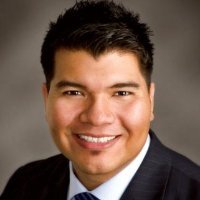Industry Insights
May 15, 2017
Luna: Why Details Matter in the Formulary Debate
- State: Louisiana
- - 0 shares
Generalities plague the workers’ compensation industry, from indirectly typecasting opioid-using patients as drug addicts to characterizing physicians as narrow-minded, profit-driven narcissists, and former state officials suggesting a single binary drug list can have similar cost-saving effects in multiple jurisdictions.

Carlos Luna
The proverbial broad brush is a potent distraction from the specific issues needing attention in order to improve the quality of care to injured workers.
Louisiana’s need of a drug formulary
Former Texas Workers’ Compensation Commissioner Rod Bordelon has represented Work Loss Data Institute and its Official Disability Guidelines and drug formulary in a number of jurisdictions. In November of 2016, he made a stop at the Louisiana Association of Self Insured Employers (LASIE) annual conference.
Armed with the usual workers’ compensation cost savings statistics from the State of Texas, Bordelon and LASIE made a case suggesting that Louisiana can experience similar savings if it adopts the same formulary as Texas, the ODG binary drug list. The presentation overlooked two critical differences between Louisiana and Texas that will have a significant impact on the formulary’s performance:
- Louisiana recognizes the Colorado treatment guidelines as the presumptively correct standard of care, not the ODG treatment guidelines like Texas.
- Louisiana does not have a legislative mandate to use return-to-work guidelines to support the return-to-work process of its injured workers.
The Colorado treatment guidelines and ODG treatment guidelines have very different levels of rigor in their development methodology. As an indication of the differences in their scientific basis, the Colorado guidelines are listed in AHRQ’s National Guideline Clearinghouse for being trustworthy clinical guidelines aligning with the Institute of Medicine’s standards for developing trustworthy clinical practice guidelines.
After it was determined that they did not meet critical standards of evidence-based medicine such as transparency, study inclusion/exclusion criteria, the ODG treatment guidelines were removed from the National Guideline Clearinghouse in June of 2016. As a result, Louisiana stakeholders should expect to experience friction and disconnect resulting from using the ODG drug list, purportedly based on the ODG treatment guidelines, and the Colorado guidelines in concert.
Perhaps the most underestimated component of the Texas workers’ compensation system that has supported reduction in prescription drugs is the state's legislated mandate to use return-to-work guidelines to help injured workers return to productivity as soon and safely as possible.
Texas’ efforts to keep workers employed while recovering from work-related injuries and illnesses has resulted in a drop in lost-time claims from 165,000 in 2000 to fewer than 90,000 in 2014. The success of the return-to-work program is preventing the pathogenic effects of job loss, such as decreased physical and mental health, and higher treatment utilization, thus driving down medication consumption.
The basis of a trustworthy drug formulary
On May 1, the California Division of Workers Compensation (DWC) held a public hearing required by statute in order to collect feedback on its proposed regulation package for the enactment of the MTUS drug formulary/preferred drug list derived from the American College of Occupational and Environmental Medicine-based formulary.
California's journey to adopting a trustworthy drug formulary has been long, detail-oriented and started with a comprehensive independent report from the Rand Corp., "Implementing a Drug Formulary for California’s Workers’ Compensation Program."
Several assumptions regarding how California’s DWC would design and implement the drug formulary underpinned Rand’s methodological approach and policy analyses. The first, and possibly most important, assumption was that the DWC intended to adopt a formulary designed to maximize quality-of-care, health and work-related outcomes.
This has also been a guiding principal behind Louisiana’s HB 592, according the bill’s sponsor, Rep. Kirk Talbot, and LASIE. To accomplish these objectives in California, Rand recommended the formulary drug list and drug classification scheme to be evidence-based and as consistent with the California’s medical treatment utilization schedule (i.e., California’s treatment guidelines) as possible.
Rand reviewed five drug formulary models: Washington's State Department of Labor and Industries model; Reed Group’s ACOEM-based formulary; Work Loss Data Institute’s ODG formulary; the Ohio Bureau of Workers’ Compensation model; and that of the California Department of Health Care Service (Medi-Cal).
The five models were compared across six criteria including, but not limited to, reliance on evidence-based criteria; transparency in the process used to establish and maintain the formulary drug list and recommendation; and the established process for regular updates to the formulary drugs and recommendations.
The Rand report identified that while the ODG formulary would be easier to implement, methods used to develop the guidelines used as the formulary’s basis have been less rigorous than its counterparts in the workers’ compensation arena (Nuckols et al., 2014), and the methodology used to derive California’s prospective review requirements when there are condition-specific variations in the guideline recommendations is not transparent.
Based on these findings, the ODG formulary may be easy to implement but was not determined to be a trustworthy source to maximize quality-of-care, health and work-related outcomes.
Due to fact that very little of California’s MTUS guidelines were based on ODG, the adoption of the ODG formulary would represent a major departure from the current California treatment guidelines. Similarly to California, a departure from Louisiana’s presumptively correct standards, the Colorado treatment guidelines, will create an environment governed by friction and disagreement.
Trends in state adoptions of commercial EBM guidelines and drug formularies
A trend seems to be evolving throughout the country regarding proposals to adopt evidence-based treatment guidelines and drug formularies. In 2016, numerous stakeholders in more than a dozen states proposed the adoption of nationally recognized, evidence-based medical treatment guidelines and drug formularies. A number of bills introduced during the 2016 legislative sessions specifically named the ODG treatment guidelines and drug formulary.
As education aimed at providing state lawmakers and stakeholders in workers’ compensation with important information to measure the quality and trustworthiness of EBM content sources becomes more popular, the interest in the ODG brand is waning. Of the two commercially available workers’ compensation guidelines and formularies, only Reed Group’s ACOEM treatment guidelines and drug formulary have been selected for adoption in the last 24 months (California and Nevada).
It is clear that AHRQ’s National Guideline Clearinghouse’s announcement of ODG’s removal from its database in June 2016 was a major disruptor in the national workers’ compensation industry’s pursuit of the content source. According to Mary Nix, (AHRQ’s health scientist administrator, the removal was prompted after AHRQ’s clearinghouse was not able to assure that the systematic evidence review was conducted for the topics covered in ODG.
In addition to Louisiana, Montana, Nebraska, New York and Pennsylvania have ongoing legislative conversations pertaining to the adoption of a drug formulary. As with Louisiana, the Colorado treatment guidelines are adopted in part, or in whole, in Montana and New York, providing the content source presumptive weight. The question of what formulary will work best in concert with the Colorado treatment guidelines will also need to be answered in these jurisdictions.
Time will tell
While most stakeholders in Louisiana feel that an evidence-based drug formulary can be a useful tool to support other state measures to curb opioid prescriptions, not many believe the ODG binary drug list is the right fit for injured workers in the state. Louisiana Rep. Chris Broadwater, author of this year’s HB 529 calling for the Louisiana Office of Workers’ Compensation Administration to create a drug formulary, pulled a similar bill introduced in 2016 requiring the use of the ODG binary drug list. What does Broadwater know that Talbot, Bordelon and LASIE do not?
Comparing the Texas workers’ compensation system to Louisiana’s system is like comparing apples to oranges. The expectations for similar outcomes is a stretch, to say the least, at the expense of injured workers.
In an industry where complexity is normal and expected, it seems a broad-brush approach to anything would be unfamiliar and uncomfortable. Time will tell if the desire to save money will prevail over common sense, medical sensibility and preserving the injured workers’ right to the appropriate medical care.
Carlos Luna is director of government affairs for ReedGroup, owner and publisher of the American College of Occupational and Environmental Medicine treatment guidelines and drug formulary.
Advertisements
Columns
- Montgomery: San Fran City Official Stole $627k From Workers' Comp Division 12/10/25
- Kamin: Ring the Bells for Settlement Season 12/08/25
- Paduda: Does Comp Care About Workers? 12/05/25
- Sandoval: Throwing Subrogation Under the Bus 12/03/25
- Johnson: Some Thoughts on Apportionment - And SIBTF 11/20/25
- Montgomery: State's First Responders May File Comp Claims for Trauma 11/14/25
- Snyder: Use This New Survey to Negotiate Better 11/12/25
- Holden: Workers' Compensation Act Withstands Another Constitutional Attack 11/11/25
- Gelman: Sherrill's Win Locks in Worker Protections 11/10/25
- Kamin: Newsom Promises SIBTF Reforms in 2026 11/07/25
- Kamin: Comp Costs Hit Highest Combined Ratio Since 2001, WCIRB Says 11/05/25
- Montgomery: DIR to Blow $1.25M on Another Questionable Comp Study 11/03/25
- Wroten: California Sets the Standard as New Study Links Workplace Injuries to Heat Exposure 10/29/25
- Kamin: En Banc Clarifies Policy Reporting Requirements 10/27/25
- Gelman: PTSD-Stricken Officer's Disability Claim Denied 10/22/25
- Snyder: TAG a Structured Settlement Broker 10/17/25
- Snyder: New Medi-Cal Rules Can Affect Your Settlement 10/15/25
- Fish: Guarding Against PTSD Overdiagnosis 10/10/25
- Montgomery: DWC's MPN List Disappears Yet Again 10/08/25
- Ferguson: A Tribute to Thomas Chapman Lynch 10/06/25
Now Trending
- Workers' Compensation News
-
Calif. Court: WCAB
Has Duty to Flesh Out Witness
Statements When Workers Can't…
Posted on Dec 9, 2025
-
Calif. Fraud
Conviction Leads to $132,023
Restitution…
Posted on Dec 16, 2025
-
Calif. Court Nixes
Requirement to Add Comp Coverage to
FAIR…
Posted on Dec 10, 2025
-
Mo. Carrier Must
Pay Bill for Worker's Knee…
Posted on Dec 11, 2025
-
Wis. Employer
Wrongfully Refuses to Rehire
Injured Truck…
Posted on Dec 10, 2025
-
N.J. Legislators
Seek to Block ABC Rule…
Posted on Dec 15, 2025
-
N.C. County Solely
Liable for Off-Duty Officer's
Injuries on Traffic…
Posted on Dec 16, 2025
-
N.J. High Court:
Comp Judge Can Rule on Law She
Sponsored in…
Posted on Dec 12, 2025
-
N.Y. Widow Doesn't
Need Carrier's Consent to Settle
Third-Party…
Posted on Dec 9, 2025
-
Ariz. Court
Upholds Closure of Worker's Claim
for Injuries From Being Punched by…
Posted on Dec 12, 2025
Jobs
- Workers' Compensation Defense Attorney (REMOTE)
- Workers’ Compensation Defense Attorney - 100% Remote
- In-house REMOTE Workers' Compensation Litigation Attorney
- Defense Attorneys - Remote Work Available
- Trial Attorney - Workers Compensation Staff Counsel
- Defense WC Attorney Wanted- We will beat any offer for the right candidate. Low billables, real bonuses and fast track equity partnership
- testing posting a job Workers' Compensation Jobs
Upcoming Events
Mar 3-4, 2026
Save The Date! WCRI’s 2026 Ann
Registration will open up in the coming months. We'll see you there! - Leading national workers' …
Mar 5-6, 2026
DWC’s 33rd Annual Educational
Register Now! 2026 conference topics: DWC Update AI with a Claims Focus Medical and Legal Ethics …
Mar 19-20, 2026
DWC’s 33rd Annual Educational
Register today! 2026 conference topics: DWC Update AI with a Claims Focus Medical and Legal Ethi …
Social Media Links
c/o Business Insurance Holdings, Inc.
Greenwich, CT 06836




No Comments
Log in to post a comment